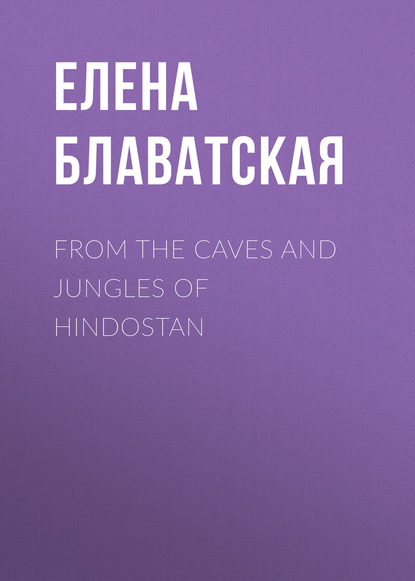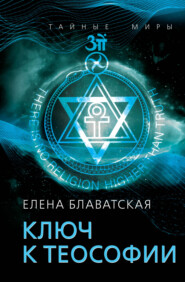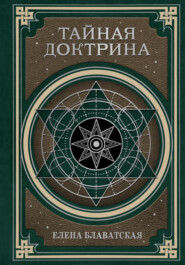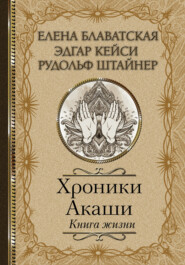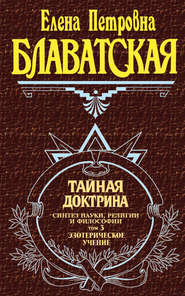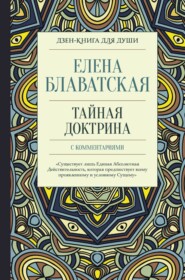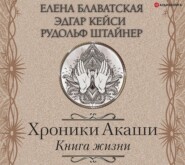По всем вопросам обращайтесь на: info@litportal.ru
(©) 2003-2024.
✖
From the Caves and Jungles of Hindostan
Настройки чтения
Размер шрифта
Высота строк
Поля
All this was very interesting, but still, disturbed by the din, we could not listen attentively.
"Don't worry yourselves," said the Takur, who soon understood our uneasiness, in spite of our attempts at composure. "After midnight the wind will fall, and you will sleep undisturbed. However, if the too close neighborhood of this musical grass is too much for you, we may as well go nearer to the shore. There is a spot from which you can see the sacred bonfires on the opposite shore."
We followed him, but while walking through the thickets of reeds we did not leave off our conversation. "How is it that the Brahmans manage to keep up such an evident cheat?" asked the colonel. "The stupidest man cannot fail to see in the long run who made the holes in the reeds, and how they come to give forth music."
"In America stupid men may be as clever as that; I don't know," answered the Takur, with a smile; "but not in India. If you took the trouble to show, to describe, and to explain how all this is done to any Hindu, be he even comparatively educated, he will still see nothing. He will tell you that he knows as well as yourself that the holes are made by the beetles and enlarged by the fakirs. But what of that? The beetle in his eyes is no ordinary beetle, but one of the gods incarnated in the insect for this special purpose; and the fakir is a holy ascetic, who has acted in this case by the order of the same god. That will be all you will ever get out of him. Fanaticism and superstition took centuries to develop in the masses, and now they are as strong as a necessary physiological function. Kill these two and the crowd will have its eyes opened, and will see truth, but not before. As to the Brahmans, India would have been very fortunate if everything they have done were as harmless. Let the crowds adore the muse and the spirit of harmony. This adoration is not so very wicked, after all."
The Babu told us that in Dehra-Dun this kind of reed is planted on both sides of the central street, which is more than a mile long. The buildings prevent the free action of the wind, and so the sounds are heard only in time of east wind, which is very rare. A year ago Swami Dayanand happened to camp off Dehra-Dun. Crowds of people gathered round him every evening. One day he delivered a very powerful sermon against superstition. Tired out by this long, energetic speech, and, besides, being a little unwell, the Swami sat down on his carpet and shut his eyes to rest as soon as the sermon was finished. But the crowd, seeing him so unusually quiet and silent, all at once imagined that his soul, abandoning him in this prostration, entered the reeds—that had just begun to sing their fantastical rhapsody—and was now conversing with the gods through the bamboos. Many a pious man in this gathering, anxious to show the teacher in what fulness they grasped his teaching and how deep was their respect for him personally, knelt down before the singing reeds and performed a most ardent puja.
"What did the Swami say to that?"
"He did not say anything.... Your question shows that you don't know our Swami yet," laughed the Babu. "He simply jumped to his feet, and, uprooting the first sacred reed on his way, gave such a lively European bakshish (thrashing) to the pious puja-makers, that they instantly took to their heels. The Swami ran after them for a whole mile, giving it hot to everyone in his way. He is wonderfully strong is our Swami, and no friend to useless talk, I can tell you."
"But it seems to me," said the colonel, "that that is not the right way to convert crowds. Dispersing and frightening is not converting."
"Not a bit of it. The masses of our nation require peculiar treatment.... Let me tell you the end of this story. Disappointed with the effect of his teachings on the inhabitants of Dehra-Dun, Dayanand Saraswati went to Patna, some thirty-five or forty miles from there. And before he had even rested from the fatigues of his journey, he had to receive a deputation from Dehra-Dun, who on their knees entreated him to come back. The leaders of this deputation had their backs covered with bruises, made by the bamboo of the Swami! They brought him back with no end of pomp, mounting him on an elephant and spreading flowers all along the road. Once in Dehra-Dun, he immediately proceeded to found a Samaj, a society as you would say, and the Dehra-Dun Arya-Samaj now counts at least two hundred members, who have renounced idol-worship and superstition for ever."
"I was present," said Mulji, "two years ago in Benares, when Dayanand broke to pieces about a hundred idols in the bazaar, and the same stick served him to beat a Brahman with. He caught the latter in the hollow idol of a huge Shiva. The Brahman was quietly sitting there talking to the devotees in the name, and so to speak, with the voice of Shiva, and asking money for a new suit of clothes the idol wanted."
"Is it possible the Swami had not to pay for this new achievement of his?"
"Oh, yes. The Brahman dragged him into a law court, but the judge had to pronounce the Swami in the right, because of the crowd of sympathizers and defenders who followed the Swami. But still he had to pay for all the idols he had broken. So far so good; but the Brahman died of cholera that very night, and of course, the opposers of the reform said his death was brought on by the sorcery of Dayanand Saraswati. This vexed us all a good deal."
"Now, Narayan, it is your turn," said I. Have you no story to tell us about the Swami? And do you not look up to him as to your Guru?"
"I have only one Guru and only one God on earth, as in heaven," answered Narayan; and I saw that he was very unwilling to speak. "And while I live, I shall not desert them."
"I know who is his Guru and his God!" thoughtlessly exclaimed the quick-tongued Babu. "It is the Takur—Sahib. In his person both coincide in the eyes of Narayan."
"You ought to be ashamed to talk such nonsense, Babu," coldly remarked Gulab-Sing. "I do not think myself worthy of being anybody's Guru. As to my being a god, the mere words are a blasphemy, and I must ask you not to repeat them… Here we are!" added he more cheerfully, pointing to the carpets spread by the servants on the shore, and evidently desirous of changing the topic. "Let us sit down!"
We arrived at a small glade some distance from the bamboo forest. The sounds of the magic orchestra reached us still, but considerably weakened, and only from time to time. We sat to the windward of the reeds, and so the harmonic rustle we heard was exactly like the low tones of an Aeolian harp, and had nothing disagreeable in it. On the contrary, the distant murmur only added to the beauty of the whole scene around us.
We sat down, and only then I realized how tired and sleepy I was—and no wonder, after being on foot since four in the morning, and after all that had happened to me on this memorable day. The gentlemen went on talking, and I soon became so absorbed in my thoughts that their conversation reached me only in fragments.
"Wake up, wake up!" repeated the colonel, shaking me by the hand. "The Takur says that sleeping in the moonlight will do you harm."
I was not asleep; I was simply thinking, though ex-hausted and sleepy. But wholly under the charm of this enchanting night, I could not shake off my drowsiness, and did not answer the colonel.
"Wake up, for God's sake! Think of what you are risking!" continued the colonel. "Wake up and look at the landscape before us, at this wonderful moon. Have you ever seen anything to equal this magnificent panorama?"
I looked up, and the familiar lines of Pushkin about the golden moon of Spain flashed into my mind. And indeed this was a golden moon. At this moment she radiated rivers of golden light, poured forth liquid gold into the tossing lake at our feet, and sprinkled with golden dust every blade of grass, every pebble, as far as the eye could reach, all round us. Her disk of silvery yellow swiftly glided upward amongst the big stars, on their dark blue ground.
Many a moonlit night have I seen in India, but every time the impression was new and unexpected. It is no use trying to describe these feerique pictures, they cannot be represented either in words or in colors on canvas, they can only be felt—so fugitive is their grandeur and beauty! In Europe, even in the south, the full moon eclipses the largest and most brilliant of the stars, so that hardly any can be seen for a considerable distance round her. In India it is quite the contrary; she looks like a huge pearl surrounded by diamonds, rolling on a blue velvet ground. Her light is so intense that one can read a letter written in small handwriting; one even can perceive the different greens of the trees and bushes—a thing unheard of in Europe. The effect of the moon is especially charming on tall palm trees. From the first moment of her appearance her rays glide over the tree downwards, beginning with the feathery crests, then lighting up the scales of the trunk, and descending lower and lower till the whole palm is literally bathing in a sea of light. Without any metaphor the surface of the leaves seems to tremble in liquid silver all the night long, whereas their under surfaces seem blacker and softer than black velvet. But woe to the thoughtless novice, woe to the mortal who gazes at the Indian moon with his head uncovered. It is very dangerous not only to sleep under, but even to gaze at the chaste Indian Diana. Fits of epilepsy, madness and death are the punishments wrought by her treacherous arrows on the modern Acteon who dares to contemplate the cruel daughter of Latona in her full beauty. The Hindus never go out in the moonlight without their turbans or pagris. Even our invulnerable Babu always wore a kind of white cap during the night.
As soon as the reeds concert reaches its height and the inhabitants of the neighborhood hear the distant "voices of the gods," whole villages flock together to the bank of the lake, light bonfires, and perform their pujas. The fires lit up one after the other, and the black silhouettes of the worshippers moved about on the opposite shore. Their sacred songs and loud exclamations, "Hari, Hari, Maha-deva!" resounded with a strange loudness and a wild emphasis in the pure air of the night. And the reeds, shaken in the wind, answered them with tender musical phrases. The whole stirred a vague feeling of uneasiness in my soul, a strange intoxication crept gradually over me, and in this enchanting place the idol-worship of these passionate, poetical souls, sunk in dark ignorance, seemed more intelligible and less repulsive. A Hindu is a born mystic, and the luxuriant nature of his country has made of him a zealous pantheist.
Sounds of alguja, a kind of Pandean pipe with seven openings, struck our attention; their music was wafted by the wind quite distinctly from somewhere in the wood. They also startled a whole family of monkeys in the branches of a tree over our heads. Two or three monkeys carefully slipped down, and looked round as if waiting for something.
"What is this new Orpheus, to whose voice these monkeys answer?" asked I laughingly.
"Some fakir probably. The alguja is generally used to invite the sacred monkeys to their meals. The community of fakirs, who once inhabited this island, have removed to an old pagoda in the forest. Their new resting-place brings them more profit, because there are many passers by, whereas the island is perfectly isolated."
"Probably they were compelled to desert this dreadful place because they were threatened by chronic deafness," Miss X– expressed her opinion. She could not help being out of temper at being prevented from enjoying her quiet slumber, our tents being right in the middle of the orchestra.
"A propos of Orpheus," asked the Takur, "do you know that the lyre of this Greek demigod was not the first to cast spells over people, animals and even rivers? Kui, a certain Chinese musical artist, as they are called, expresses something to this effect: 'When I play my kyng the wild animals hasten to me, and range themselves into rows, spellbound by my melody.' This Kui lived one thousand years before the supposed era of Orpheus."
"What a funny coincidence!" exclaimed I. "Kui is the name of one of our best artists in St. Petersburg. Where did you read this?"
"Oh, this is not a very rare piece of information. Some of your Western Orientalists have it in their books. But I personally found it in an ancient Sanskrit book, translated from the Chinese in the second century before your era. But the original is to be found in a very ancient work, named The Preserver of the Five Chief Virtues. It is a kind of chronicle or treatise on the development of music in China. It was written by the order of Emperor Hoang-Tee many hundred years before your era."
"Do you think, then, that the Chinese ever understood anything about music?" said the colonel, with an incredulous smile. "In California and other places I heard some traveling artists of the celestial empire. Well, I think, that kind of musical entertainment would drive any one mad."
"That is exactly the opinion of many of your Western musicians on the subject of our ancient Aryan, as well as of modern Hindu, music. But, in the first instance, the idea of melody is perfectly arbitrary; and, in the second, there is a good deal of difference between the technical knowledge of music, and the creation of melodies fit to please the educated, as well as the uneducated, ear. According to technical theory, a musical piece may be perfect, but the melody, nevertheless, may be above the understanding of an untrained taste, or simply unpleasant. Your most renowned operas sound for us like a wild chaos, like a rush of strident, entangled sounds, in which we do not see any meaning at all, and which give us headaches. I have visited the London and the Paris opera; I have heard Rossini and Meyer-beer; I was resolved to render myself an account of my impressions, and listened with the greatest attention. But I own I prefer the simplest of our native melodies to the productions of the best European composers. Our popular songs speak to me, whereas they fail to produce any emotion in you. But leaving the tunes and songs out of question, I can assure you that our ancestors, as well as the ancestors of the Chinese, were far from inferior to the modern Europeans, if not in technical instrumentation, at least in their abstract notions of music."
"The Aryan nations of antiquity, perhaps; but I hardly believe this in the case of the Turanian Chinese!" said our president doubtfully.
"But the music of nature has been everywhere the first step to the music of art. This is a universal rule. But there are different ways of following it. Our musical system is the greatest art, if—pardon me this seeming paradox—avoiding all artificiality is art. We do not allow in our melodies any sounds that cannot be classified amongst the living voices of nature; whereas the modern Chinese tendencies are quite different. The Chinese system comprises eight chief tones, which serve as a tuning-fork to all derivatives; which are accordingly classified under the names of their generators. These eight sounds are: the notes metal, stone, silk, bamboo, pumpkin, earthenware, leather and wood. So that they have metallic sounds, wooden sounds, silk sounds, and so on. Of course, under these conditions they cannot produce any melody; their music consists of an entangled series of separate notes. Their imperial hymn, for instance, is a series of endless unisons. But we Hindus owe our music only to living nature, and in nowise to inanimate objects. In a higher sense of the word, we are pantheists, and so our music is, so to speak, pantheistic; but, at the same time, it is highly scientific. Coming from the cradle of humanity, the Aryan races, who were the first to attain manhood, listened to the voice of nature, and concluded that melody as well as harmony are both contained in our great common mother. Nature has no false and no artificial notes; and man, the crown of creation, felt desirous of imitating her sounds. In their multiplicity, all these sounds—according to the opinion of some of your Western physicists—make only one tone, which we all can hear, if we know how to listen, in the eternal rustle of the foliage of big forests, in the murmur of water, in the roar of the storming ocean, and even in the distant roll of a great city. This tone is the middle F, the fundamental tone of nature. In our melodies it serves as the starting point, which we embody in the key-note, and around which are grouped all the other sounds. Having noticed that every musical note has its typical representative in the animal kingdom, our ancestors found out that the seven chief tones correspond to the cries of the goat, the peacock, the ox, the parrot, the frog, the tiger, and the elephant. So the octave was discovered and founded. As to its subdivisions and measure, they also found their basis in the complicated sounds of the same animals."
"I am no judge of your ancient music," said the colonel, "nor do I know whether your ancestors did, or did not, work out any musical theories, so I cannot contradict you; but I must own that, listening to the songs of the modern Hindus, I could not give them any credit for musical knowledge."
"No doubt it is so, because you have never heard a professional singer. When you have visited Poona, and have listened to the Gayan Samaj, we shall resume our present conversation. The Gayan Samaj is a society whose aim is to restore the ancient national music."
Gulab-Lal-Sing spoke in his usual calm voice, but the Babu was evidently burning to break forth for his country's honor, and at the same time, he was afraid of offending his seniors by interrupting their conversation. At last he lost patience.
"You are unjust, colonel!" he exclaimed. "The music of the ancient Aryans is an antediluvian plant, no doubt, but nevertheless it is well worth studying, and deserves every consideration. This is perfectly proved now by a compatriot of mine, the Raja Surendronath Tagor.... He is a Mus. D., he has lots of decorations from all kinds of kings and emperors of Europe for his book about the music of Aryans.... And, well, this man has proved, as clear as daylight, that ancient India has every right to be called the mother of music. Even the best musical critics of England say so!… Every school, whether Italian, German or Aryan, saw the light at a certain period, developed in a certain climate and in perfectly different circumstances. Every school has its characteristics, and its peculiar charm, at least for its followers; and our school is no exception. You Europeans are trained in the melodies of the West, and acquainted with Western schools of music; but our musical system, like many other things in India, is totally unknown to you. So you must forgive my boldness, colonel, when I say that you have no right to judge!"
"Don't get so excited, Babu," said the Takur. "Every one has the right, if not to discuss, then to ask questions about a new subject. Otherwise no one would ever get any information. If Hindu music belonged to an epoch as little distant from us as the European—which you seem to suggest, Babu, in your hot haste; and if, besides, it included all the virtues of all the previous musical systems, which the European music assimilates; then no doubt it would have been better understood, and better appreciated than it is. But our music belongs to prehistoric times. In one of the sarcophagi at Thebes, Bruce found a harp with twenty strings, and, judging by this instrument, we may safely say that the ancient inhabitants of Egypt were well acquainted with the mysteries of harmony. But, except the Egyptians, we were the only people possessing this art, in the remote epochs, when the rest of mankind were still struggling with the elements for bare existence. We possess hundreds of Sanskrit MSS. about music, which have never been translated, even into modern Indian dialects. Some of them are four thousand and eight thousand years old. Whatever your Orientalists may say to the contrary, we will persist in believing in their antiquity, because we have read and studied them, while the European scientists have never yet set their eyes on them. There are many of these musical treatises, and they have been written at different epochs; but they all, without exception, show that in India music was known and systematized in times when the modern civilized nations of Europe still lived like savages. However true, all this does not give us the right to grow indignant when Europeans say they do not like our music, as long as their ears are not accustomed to it, and their minds cannot understand its spirit.... To a certain extent we can explain to you its technical character, and give you a right idea of it as a science. But nobody can create in you, in a moment, what the Aryans used to call Rakti; the capacity of the human soul to receive and be moved by the combinations of the various sounds of nature. This capacity is the alpha and omega of our musical system, but you do not possess it, as we do not possess the possibility to fall into raptures over Bellini."
"But why should it be so? What are these mysterious virtues of your music, that can be understood only by yourselves? Our skins are of different colors, but our organic mechanism is the same. In other words, the physiological combination of bones, blood, nerves, veins and muscles, which forms a Hindu, has as many parts, combined exactly after the same model as the living mechanism known under the name of an American, Englishman, or any other European. They come into the world from the same workshop of nature; they have the same beginning and the same end. From a physiological point of view we are duplicates of each other."
"Physiologically yes. And it would be as true psychologically, if education did not interfere, which, after all is said and done, could not but influence the mental and the moral direction taken by a human being. Sometimes it extinguishes the divine spark; at other times it only increases it, transforming it into a lighthouse which becomes man's lodestar for life."
"No doubt this is so. But the influence it has over the physiology of the ear cannot be so overpowering after all."
"Quite the contrary. Only remember what a strong influence climatic conditions, food and everyday surroundings have on the complexion, vitality, capacity for reproduction, and so on, and you will see that you are mistaken. Apply this same law of gradual modification to the purely psychic element in man, and the results will be the same. Change the education and you will change the capacities of a human being.... For instance, you believe in the powers of gymnastics, you believe that special exercise can almost transform the human body. We go one step higher. The experience of centuries shows that gymnastics exist for the soul as well as for the body. But what the soul's gymnastics are is our secret. What is it that gives to the sailor the sight of an eagle, that endows the acrobat with the skill of a monkey, and the wrestler with muscles of iron? Practice and habit. Then why should not we suppose the same possibilities in the soul of the man as well as in his body? Perhaps on the grounds of modern science—which either dispenses with the soul altogether, or does not acknowledge in it a life distinct from the life of the body...."
"Please do not speak in this way, Takur. You, at least, ought to know that I believe in the soul and in its immortality!"
"We believe in the immortality of spirit, not of soul, following the triple division of body, soul and spirit. However, this has nothing to do with the present discussion.... And so you agree to the proposition that every dormant possibility of the soul may be led to perfected strength and activity by practice, and also that if not properly used it may grow numb and even disappear altogether. Nature is so zealous that all her gifts should be used properly, that it is in our power to develop or to kill in our descendants any physical or mental gift. A systematic training or a total disregard will accomplish both in the lifetime of a few generations."
"Perfectly true; but that does not explain to me the secret charm of your melodies...."
"These are details and particulars. Why should I dwell on them when you must see for yourself that my reasoning gives you the clue, which will solve many similar problems? Centuries have accustomed the ear of a Hindu to be receptive only of certain combinations of atmospheric vibrations; whereas the ear of a European is used to perfectly different combinations. Hence the soul of the former will be enraptured where the soul of the latter will be perfectly indifferent. I hope my explanation has been simple and clear, and I might have ended it here were it not that I am anxious to give you something better than the feeling of satisfied curiosity. As yet I have solved only the physiological aspect of the secret, which is as easily admitted as the fact that we Hindus eat by the handful spices which would give you inflammation of the intestines if you happened to swallow a single grain. Our aural nerves, which, at the beginning, were identical with yours, have been changed through different training, and became as distinct from yours as our complexion and our stomachs. Add to this that the eyes of the Kashmir weavers, men and women, are able to distinguish three hundred shades more than the eye of a European.... The force of habit, the law of atavism, if you like. But things of this kind practically solve the apparent difficulty. You have come all the way from America to study the Hindus and their religion; but you will never understand the latter if you do not realize how closely all our sciences are related, not to the modern ignorant Brahmanism, of course, but to the philosophy of our primitive Vedic religion."
"I see. You mean that your music has something to do with the Vedas?"
"Exactly. It has a good deal—almost everything—to do with the Vedas. All the sounds of nature, and, in consequence, of music, are directly allied to astronomy and mathematics; that is to say, to the planets, the signs of the zodiac, the sun and moon, and to rotation and numbers. Above all, they depend on the Akasha, the ether of space, of the existence of which your scientists have not made perfectly sure as yet. This was the teaching of the ancient Chinese and Egyptians, as well as of ancient Aryans. The doctrine of the 'music of the spheres' first saw the light here in India, and not in Greece or Italy, whither it was brought by Pythagoras after he had studied under the Indian Gymnosophists. And most certainly this great philosopher—who revealed to the world the heliocentric system before Copernicus and Galileo—knew better than anyone else how dependent are the least sounds in nature on Akasha and its interrelations. One of the four Vedas, namely, the Sama-Veda, entirely consists of hymns. This is a collection of mantrams sung during the sacrifices to the gods, that is to say, to the elements. Our ancient priests were hardly acquainted with the modern methods of chemistry and physics; but, to make up for it, they knew a good deal which has not as yet been thought of by modern scientists. So it is not to be wondered at that, sometimes, our priests, so perfectly acquainted with natural sciences as they were, forced the elementary gods, or rather the blind forces of nature, to answer their prayers by various portents. Every sound of these mantrams has its meaning, its importance, and stands exactly where it ought to stand; and, having a raison d'etre, it does not fail to produce its effect. Remember Professor Leslie, who says that the science of sound is the most subtle, the most unseizable and the most complicated of all the series of physical sciences. And if ever this teaching was worked out to perfection it was in the times of the Rishis, our philosophers and saints, who left to us the Vedas."





